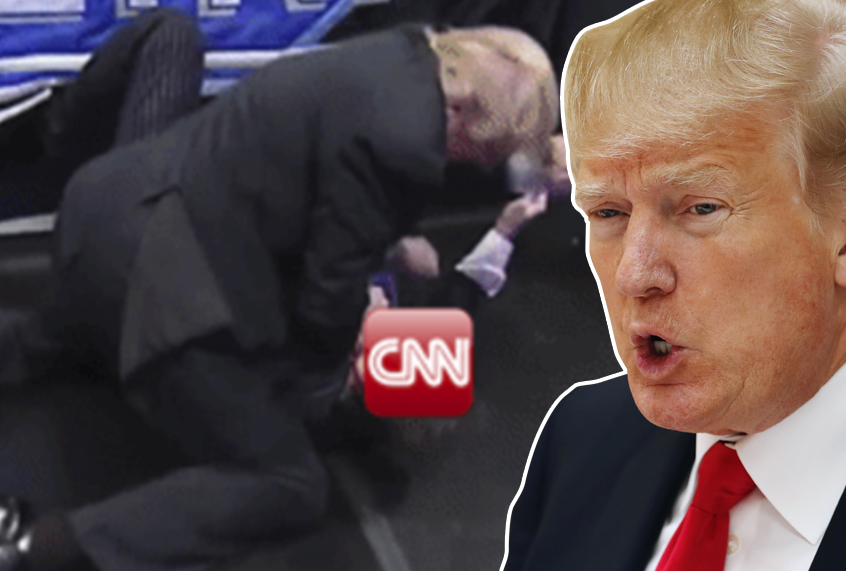President Donald Trump has long used the epithet “fake news” to discredit news outlets and stories that depict him in an unfavorable light. It appears, however, that the Orwellian term has started to leak beyond Trump’s own immediate political fortunes.
The most conspicuous example emerges from Libya, where the broadcaster Libya 218 has used one of Trump’s tweets attacking CNN as “fake news” to cast doubt on that network’s recent report of slave auctions being held in that country, according to The Guardian. Although nations like France have called on the United Nations to impose sanctions on Libya to help eliminate trafficking, at least one Libyan media outlet has echoed Trump’s words to delegitimize the story.
“Here the possibility arises that the channel has published the report of slavery in Libya to secure an as yet hidden political objective,” Libya 218 proclaimed in one of the broadcasts challenging the veracity of CNN’s report. On Monday, they even suggested that Trump’s tweet meant CNN itself could face an investigation.
.@FoxNews is MUCH more important in the United States than CNN, but outside of the U.S., CNN International is still a major source of (Fake) news, and they represent our Nation to the WORLD very poorly. The outside world does not see the truth from them!
— Donald J. Trump (@realDonaldTrump) November 25, 2017
A recent story from the Associated Press highlighted the extent of the damage that Trump’s “fake news” smear has done to legitimate reporting:
An Idaho state lawmaker urges her constituents to submit entries for her “fake news awards.” The Kentucky governor tweets #FAKENEWS to dismiss questions about his purchase of a home from a supporter. An aide to the Texas land commissioner uses the phrase to downplay the significance of his boss receiving donations from employees of a company that landed a multimillion-dollar contract.
“I worry about the ongoing attack on the legitimacy of the media by President Trump and some of his supporters. The press is hardly perfect, of course, but it is also an important mechanism of accountability for people in power. This kind of rhetoric is potentially corrosive to trust in the media and to people’s willingness to accept information that is critical of politicians they support,” Brendan Nyhan, a professor of government at Dartmouth College, told the AP. Nyhan was a co-author of a recent study by the Poynter Institute which determined that Republicans were now more likely to believe extreme and baseless claims about the media than Democrats.

